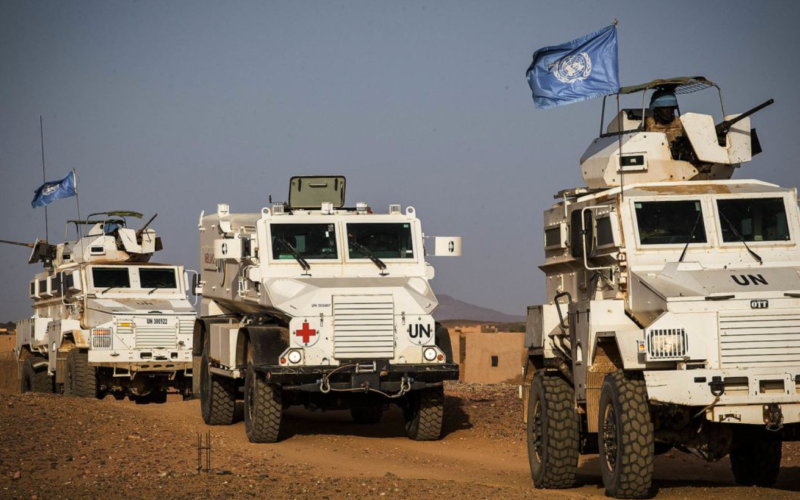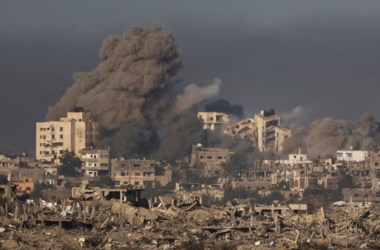The United Nations’ withdrawal from Mali has taken a chaotic turn, casting doubt on the prospects for a peaceful transition in the country. Mali’s ruling military junta issued an order in June for the United Nations mission, known as MINUSMA, to exit the country as relations soured with its international allies. However, as the withdrawal accelerates, violence and instability are escalating in northern Mali, with confrontations and looting around U.N. bases.
The situation has further deteriorated, with at least two U.N. bases being surrounded and looted, while at least a dozen peacekeepers have been injured due to explosive devices targeting U.N. convoys. The departure has been hampered by logistical challenges. The U.N. has reported that it has been forced to destroy equipment such as vehicles, ammunition, and generators that its forces couldn’t evacuate due to government-imposed restrictions. Consequently, millions of dollars’ worth of equipment have been lost during the withdrawal.
The situation has been exacerbated by the authorities’ denial of approval for air support for convoys traveling through volatile terrain in West Africa. Import restrictions on fuel and spare parts have further complicated the withdrawal, at times jeopardizing the safety of departing peacekeepers.
Security analysts have expressed concerns that the continued instability and uncertainty in Mali may lead to a complete collapse of the state, which could further destabilize the region. Mali is already dealing with insurgent groups associated with al Qaeda and the Islamic State gaining ground in various areas.
This development marks a bitter conclusion to the U.N.’s mission in Mali. The mission was initially deployed in 2012 after the north of the country was seized by Islamist militants and Tuareg rebels during an uprising. While MINUSMA initially helped restore some level of stability, violence has persisted. The mission became the U.N.’s deadliest, with over 170 peacekeepers killed in combat.
The situation has worsened due to military coups in 2020 and 2021 and the junta’s expulsion of French troops who were assisting in the fight against the Islamists. The junta also formed an alliance with the Russian private military contractor, the Wagner Group, and ordered MINUSMA to leave. The mission has until December 31 to complete its withdrawal, and more than 6,000 of the nearly 14,000 personnel have already departed.
The situation in Mali is further complicated by the deterioration of a 2015 peace agreement between the government and Tuareg rebels, which MINUSMA helped broker. The withdrawal of the U.N. mission has created instability and disputes over territorial control.
The U.N. withdrawal from Kidal, a Tuareg stronghold, is particularly concerning, with analysts suggesting that it could become a potential flashpoint. The Malian army has struggled to make progress in recent weeks as it tries to regain control of the area. There are fears that if Kidal falls into the hands of the rebels, it could escalate tensions and lead to further conflict in the region.
The situation in Mali requires careful monitoring, as it has far-reaching implications for the security and stability of not only Mali but the entire Sahel region in West Africa.








